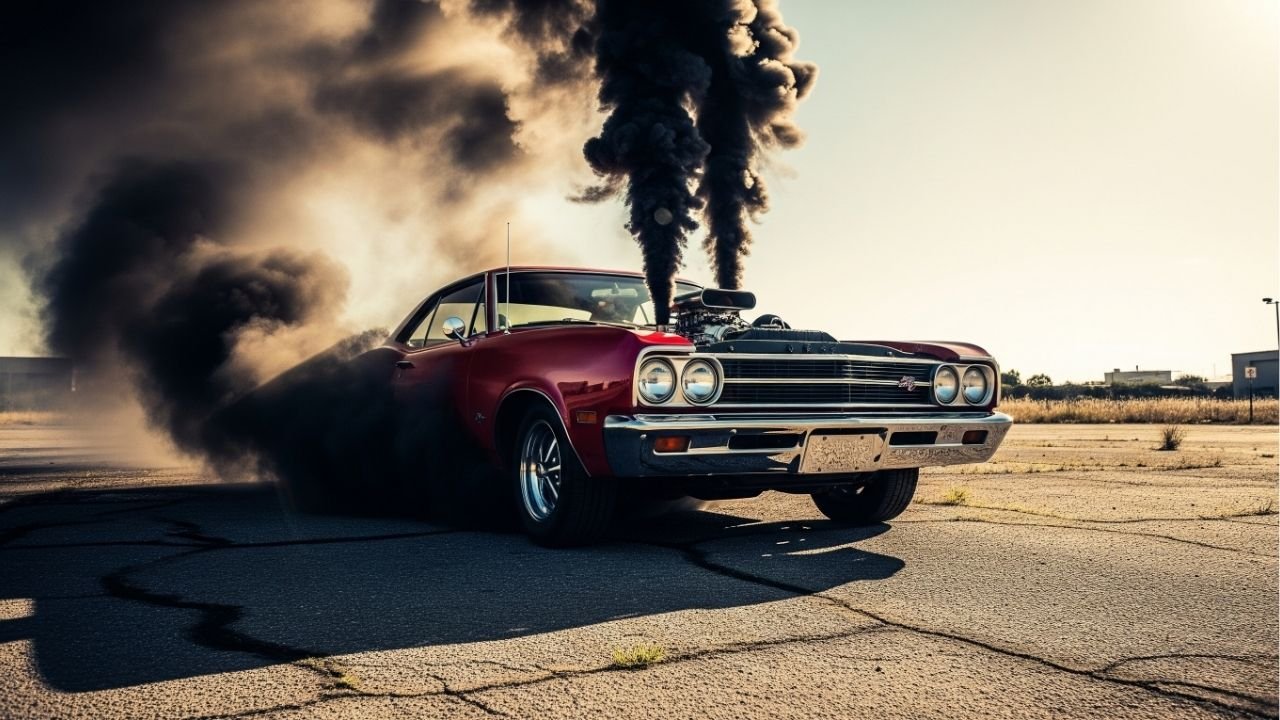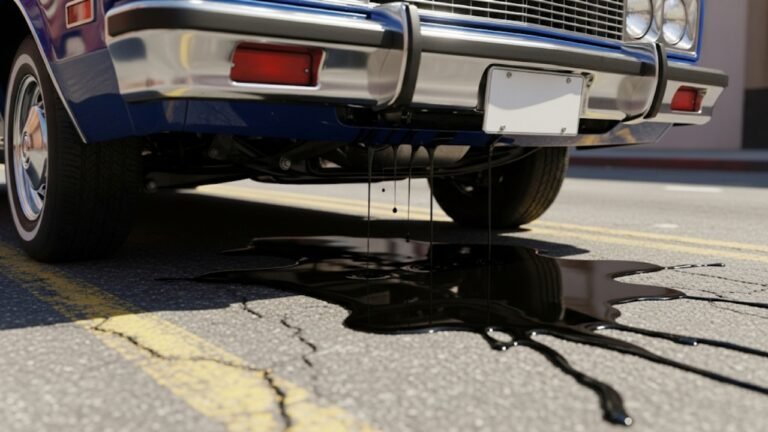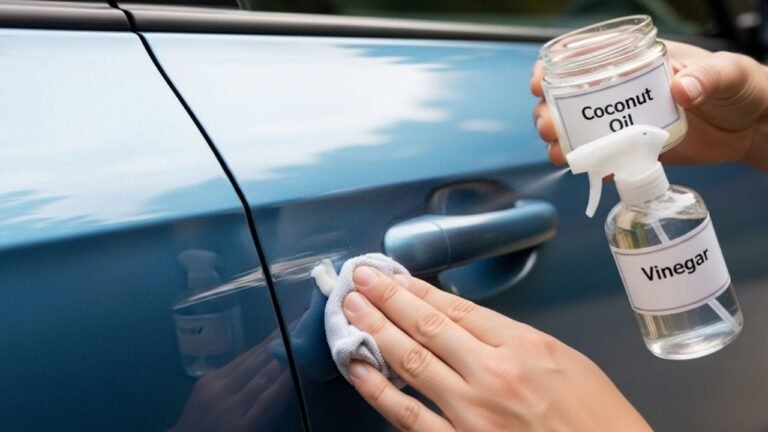Why Is My Car Burning Through Oil?

There’s nothing more frustrating than realizing your car is going through oil like a kid with candy. One week the dipstick is fine, the next—bam!—your oil light’s flashing and your engine sounds cranky. If your car is burning through oil, you’re not alone. It’s one of those quiet car issues that sneak up, often before a major breakdown.
I remember driving down to Cox’s Bazar once, windows down, music up, and suddenly noticing a burnt smell. The engine temperature was rising and my car felt weak on the hills. Guess what? The oil was nearly gone, and I hadn’t seen a single drop on the garage floor. That was the first time I learned how sneaky this problem could be.
So, let’s get into this. We’ll cover what it means when your car is burning through oil, why it happens, and how to fix or even prevent it. Whether you’re a gearhead or just someone who loves their car, this is for you.
What Does “Car Burning Through Oil” Actually Mean?

Signs That Your Car Is Burning Oil:
-
Frequent low oil levels with no visible leaks
-
Blueish smoke from the exhaust
-
Burnt oil smell when the engine runs hot
-
Increased oil consumption between changes
-
Engine misfire or sluggish performance
Burning oil can feel like your car is aging faster than it should. And it’s more than just a nuisance—it’s a warning signal that something deeper is wrong.
Common Causes: Why Is My Car Burning Through Oil?
Understanding why this happens is key to solving it. Below are some common culprits behind excessive oil consumption:
| Cause | Description | How It Burns Oil |
|---|---|---|
| Worn Piston Rings | Rings seal the combustion chamber. If worn, oil seeps in. | Oil gets burned along with fuel. |
| Valve Seals Gone Bad | Valves control airflow. Bad seals leak oil into the cylinders. | Oil drips and burns in combustion. |
| PCV Valve Malfunction | This valve controls crankcase pressure. | If stuck, it pulls oil into the intake. |
| Old Engine Oil | Oil breaks down over time. | It loses its protective ability and gets burned. |
| Aggressive Driving | Hard accelerations, high RPMs. | Increases engine stress and oil usage. |
Each of these issues can cause your car to consume more oil than normal. Some are minor and cheap to fix. Others might need engine rebuilds. So the sooner you spot the problem, the better.
How It Feels When It Happens to You
Imagine checking your oil every weekend like clockwork. You just filled it last Saturday. Then Thursday rolls around, and your oil is dangerously low. It’s like filling a bucket with a hole in the bottom—you keep adding, and it keeps disappearing.
That sense of helplessness can creep in. You feel like you’re losing control over your car’s health. There’s also a hint of betrayal—cars are supposed to last, especially when you take care of them. But now you’re staring down the barrel of a costly repair, wondering where you went wrong.
Truth is, a car burning through oil isn’t always your fault. Sometimes it’s age, sometimes it’s design flaws, and sometimes it’s just wear and tear. But the key is not to ignore it.
How to Diagnose a Car That’s Burning Oil
Before jumping into repairs, you need to confirm that your car is actually burning oil—not leaking it or using it under heavy load conditions. Here’s a step-by-step way to check:
Step-by-Step DIY Diagnosis:
-
Check the Dipstick Regularly
Monitor oil levels weekly. Sudden drops? That’s a red flag. -
Inspect the Exhaust Smoke
Blue smoke = burning oil. Black = rich fuel. White = coolant. -
Smell for Burnt Oil
A lingering burnt smell under the hood can be a clue. -
Look Around the Engine Bay
No puddles? No gaskets leaking? Oil’s probably being burned. -
Compression Test or Leak-Down Test
These will show if piston rings or valves are the problem.
If you’re unsure, ask a trusted mechanic. The earlier you catch it, the more options you have.
Fixing a Car That’s Burning Oil: What Are Your Options?
Let’s be real. Fixing a car burning through oil can be as cheap as a new PCV valve or as expensive as a full engine rebuild. It depends on what’s broken.
Affordable Fixes:
-
Change the PCV Valve ($15–$50)
-
Use High-Mileage Oil (Slows leaks and swelling seals)
-
Use Oil Additives (Thickens oil, reduces consumption)
More Serious Repairs:
-
Replace Valve Seals (Labor-intensive, $500–$1,500)
-
Replace Piston Rings (Engine-out job, $1,500–$3,000)
-
Full Engine Rebuild (If the damage is too deep)
Here’s a useful comparison:
| Repair | Cost Estimate | Difficulty |
|---|---|---|
| PCV Valve | $15–$50 | Easy |
| Valve Seals | $500–$1,500 | Moderate |
| Piston Rings | $1,500–$3,000 | Hard |
| Engine Rebuild | $3,000+ | Extreme |
Every fix comes down to how much you love the car and what you can afford. Sometimes, using a thicker oil or switching brands helps extend the life before major work is needed.
Best Oils for Cars Burning Oil: What to Use
Switching to a high-mileage or synthetic blend oil can help reduce consumption. These oils have additives that swell seals and reduce burn-off.
Recommended Oil Types:
-
High-Mileage 10W-30 – Helps older engines
-
Synthetic 5W-40 – Good for turbo or performance engines
-
Thicker Oil (15W-40) – Reduces consumption in some cases
Be cautious. Thicker oils aren’t for every car. Always check your owner’s manual before switching grades.
How to Prevent Your Car from Burning Through Oil
You can’t always stop a car from burning oil, especially if it’s older or has design quirks. But you can slow it down—or even avoid it entirely—by taking care of a few key things.
Simple Ways to Prevent Oil Burning:
-
Regular Oil Changes
Use the right oil and change it on time. Old oil breaks down and gets consumed faster. -
Check Oil Weekly
Keep an eye on levels. If it drops suddenly, act fast. -
Avoid Aggressive Driving
High RPMs and engine stress increase oil consumption. -
Warm Up Your Engine
Let it idle for 30 seconds before you drive, especially in winter. -
Replace the PCV Valve Periodically
It’s cheap, and a clogged one is a silent killer. -
Use High-Mileage Engine Oil
These oils have conditioners to keep seals flexible and tight.
It’s like brushing your teeth—simple habits now save major repairs later. You’re not just saving oil; you’re saving money, time, and headaches.
Long-Term Damage: What Happens If You Ignore It?
Ignoring a car that’s burning oil is like ignoring a fever—you might feel okay now, but you’re headed for real trouble.
What Can Go Wrong:
-
Catalytic Converter Failure
Burnt oil clogs the catalyst. That’s a $1,000+ fix. -
Engine Misfire
Oil fouls spark plugs, which leads to uneven running and power loss. -
Complete Engine Failure
Low oil = high heat + metal-on-metal = BOOM. Literally. -
Failed Emissions Tests
Blue smoke won’t just get you strange looks. It’ll fail inspection.
Once the oil consumption gets out of control, even topping it off weekly won’t save you. The internal damage keeps growing, and by the time the engine seizes, your only option might be a full replacement—or a new car.
Common Myths About Cars Burning Through Oil
Let’s set the record straight. Not everything you hear in the garage or online is true. These myths can actually make the problem worse.
1. Myth: All Old Cars Burn Oil
Truth: Not always. Well-maintained engines with clean internals and quality oil can go hundreds of thousands of kilometers without burning oil.
2. Myth: You Can Just Keep Adding Oil Forever
Truth: It’s not a solution. Eventually, carbon buildup and poor lubrication will wreck the engine.
3. Myth: Thicker Oil Fixes Everything
Truth: Not every engine tolerates thick oil. It might hurt fuel economy and start-up lubrication.
4. Myth: Synthetic Oil Makes Burning Worse
Truth: Wrong. Good synthetic oils often reduce oil consumption if used properly.
Clearing up these misunderstandings can save you from making costly decisions.
FAQs: Your Burning Questions About Oil Burning
Here are some of the most frequently asked questions about a car burning through oil—answered simply and clearly.
1. How often should I check my oil if my car is burning it?
Check weekly. It takes 30 seconds and can save your engine. Make it part of your weekend ritual.
2. Can oil additives really help reduce oil burning?
Yes, some high-quality oil additives can swell seals and reduce consumption. But they’re a band-aid, not a cure.
3. What does blue smoke from my exhaust mean?
It almost always means your car is burning oil. The blue tint is from oil vapor igniting in the combustion chamber.
4. Is it safe to drive a car that burns oil?
Short term—maybe. Long term—no. Low oil causes heat damage, reduced power, and eventually engine death.
5. How much oil burning is normal?
Some cars naturally burn 0.5 to 1 quart per 1,600 km, especially performance models. But anything beyond that needs attention.
6. Will switching to synthetic oil fix the problem?
It might help. Synthetic oils resist burn-off and protect better. But they won’t fix worn-out seals or rings.
7. How do I know if it’s leaking or burning oil?
Burning oil leaves no drips. But you might smell it or see blue smoke. A mechanic can run a dye test to be sure.
8. Can a clogged PCV valve cause oil burning?
Yes! A stuck PCV valve creates vacuum issues that suck oil into the intake. It’s one of the easiest fixes—don’t overlook it.
Final Thoughts: Don’t Let Oil Burning Sneak Up on You
Here’s the thing. A car burning through oil isn’t just an old-car issue or a mechanic’s myth. It’s real, it’s common, and it can wreck your engine if you ignore it. But the good news? You’ve got options.
I’ve been there. Hearing that little ticking noise when oil runs low. Smelling that burnt oil scent on a long drive. And worrying about whether your engine will survive the week. But when you take action early, you don’t just save your engine—you reclaim peace of mind.
So check that dipstick. Listen to your car. Use the right oil. Don’t wait for the smoke to rise before you act.






